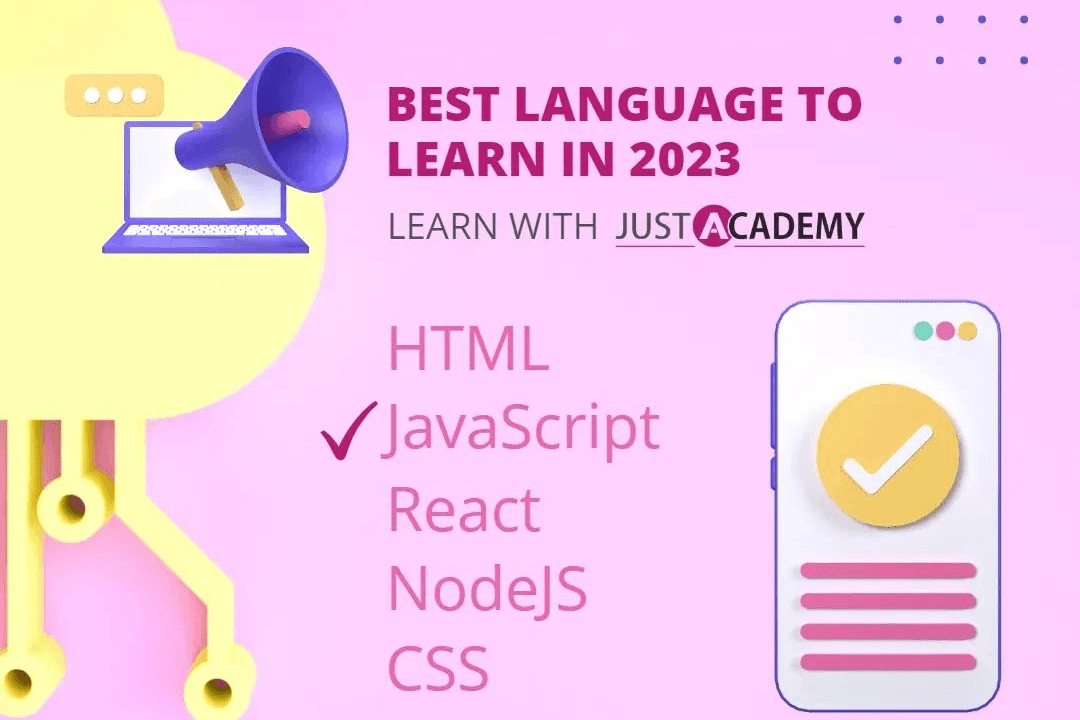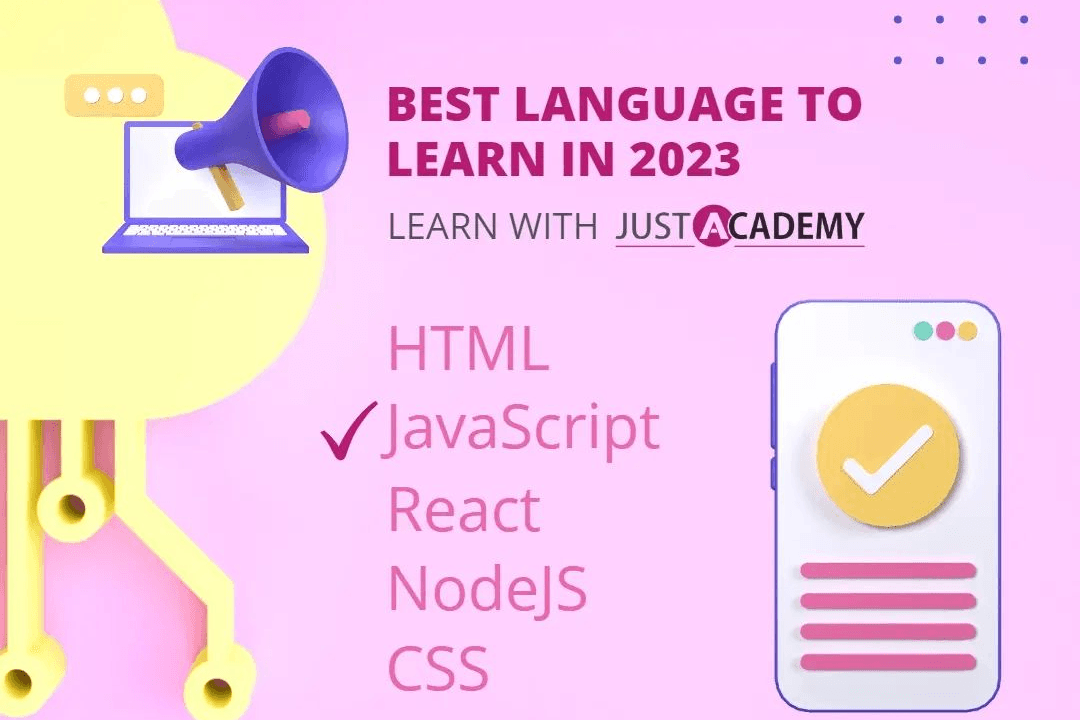Collection Programming In Php
Collection programming in PHP refers to the use of data structures, primarily arrays and objects, to
Collection Programming In Php
Collection programming in PHP is essential for efficient data management and manipulation, enabling developers to work with groups of related data in a structured manner. By utilizing collections, such as arrays and objects, programmers can easily perform operations like sorting, filtering, and transforming data without cluttering their code. This approach promotes better organization and readability, making it simpler to maintain and scale applications. Additionally, PHP's built-in functions enhance the functionality of collections, allowing developers to streamline their workflows and improve overall application performance.
To Download Our Brochure: https://www.justacademy.co/download-brochure-for-free
Message us for more information: +91 9987184296
Collection programming in PHP is essential for efficient data management and manipulation, enabling developers to work with groups of related data in a structured manner. By utilizing collections, such as arrays and objects, programmers can easily perform operations like sorting, filtering, and transforming data without cluttering their code. This approach promotes better organization and readability, making it simpler to maintain and scale applications. Additionally, PHP's built in functions enhance the functionality of collections, allowing developers to streamline their workflows and improve overall application performance.
Course Overview
The “Collection Programming in PHP” course at JustAcademy is designed to equip learners with essential skills in managing and manipulating data using various collection types in PHP. Participants will explore the fundamentals of arrays, objects, and advanced collection classes, understanding how to efficiently store, access, and modify data sets. Through real-time projects, learners will gain hands-on experience in applying collection techniques for tasks such as filtering, sorting, and transforming data. By the end of the course, students will be proficient in utilizing PHP collections to enhance code organization, improve application performance, and tackle complex data challenges effectively.
Course Description
The “Collection Programming in PHP” course offered by JustAcademy provides a comprehensive exploration of data handling and manipulation techniques using PHP's collection types. Participants will delve into the intricacies of arrays, objects, and advanced collection classes, learning to efficiently manage data through practical applications. The course emphasizes real-time projects that allow learners to apply their skills in filtering, sorting, and transforming data, ensuring they gain hands-on experience. By the end of the course, students will have a solid foundation in utilizing PHP collections to enhance code quality, organization, and overall application performance, preparing them for real-world programming challenges.
Key Features
1 - Comprehensive Tool Coverage: Provides hands-on training with a range of industry-standard testing tools, including Selenium, JIRA, LoadRunner, and TestRail.
2) Practical Exercises: Features real-world exercises and case studies to apply tools in various testing scenarios.
3) Interactive Learning: Includes interactive sessions with industry experts for personalized feedback and guidance.
4) Detailed Tutorials: Offers extensive tutorials and documentation on tool functionalities and best practices.
5) Advanced Techniques: Covers both fundamental and advanced techniques for using testing tools effectively.
6) Data Visualization: Integrates tools for visualizing test metrics and results, enhancing data interpretation and decision-making.
7) Tool Integration: Teaches how to integrate testing tools into the software development lifecycle for streamlined workflows.
8) Project-Based Learning: Focuses on project-based learning to build practical skills and create a portfolio of completed tasks.
9) Career Support: Provides resources and support for applying learned skills to real-world job scenarios, including resume building and interview preparation.
10) Up-to-Date Content: Ensures that course materials reflect the latest industry standards and tool updates.
Benefits of taking our course
Functional Tools
1 - PHP Development Environment
Students will utilize a local PHP development environment, such as XAMPP or MAMP, to set up their coding workspace. These tools provide a user friendly interface for managing Apache, MySQL, and PHP, facilitating seamless testing and development of PHP applications. By familiarizing themselves with these environments, students can efficiently run and debug their PHP scripts, essential for mastering collection programming.
2) Integrated Development Environments (IDEs)
The course introduces students to popular IDEs like PHPStorm and Visual Studio Code, which enhance productivity through robust features such as syntax highlighting, code completion, and integrated debugging. These tools allow learners to write, edit, and test their PHP code more effectively, ensuring a smoother coding experience. Mastery of an IDE is crucial for large projects, as it helps maintain organization and efficiency.
3) Version Control Systems (Git)
Students will learn to use Git, a version control system that tracks code changes and facilitates collaboration. By understanding how to manage repositories and branches, students can develop better code management practices, making it easier to collaborate on group projects and maintain project history. Knowledge of Git is vital for real world software development, where teamwork and version tracking are indispensable.
4) Debugging Tools
The course covers essential debugging tools such as Xdebug, which aids students in identifying and resolving errors in their PHP code. Practical experience with debugging techniques allows students to analyze program flow and inspect variable values during execution. This understanding of how to troubleshoot code effectively is a critical component of developing robust applications.
5) Database Management Tools
Students will explore database management systems such as MySQL or PostgreSQL, integrating them into their PHP projects. They will learn to interact with databases using PHP's PDO (PHP Data Objects) extension and perform CRUD (Create, Read, Update, Delete) operations on data. Understanding how to work with databases is crucial for any developer, as it enables them to create dynamic, data driven applications.
6) Frameworks and Libraries
Students will be introduced to popular PHP frameworks, such as Laravel and Symfony, which streamline development processes when working with collections. Utilizing these frameworks allows students to leverage pre built functionality and adhere to established best practices. They will gain hands on experience in using these tools to build scalable and maintainable applications, significantly enhancing their portfolio and job readiness.
7) API Development Tools
In the course, students will learn to use tools such as Postman for testing APIs. This practical knowledge allows them to evaluate how PHP scripts interact with external services and databases through API calls. Understanding API development is essential for modern applications, as it facilitates integration with other platforms and services, expanding the functionality and reach of their projects.
8) Testing Frameworks
The course will introduce students to testing frameworks like PHPUnit, empowering them to write automated tests for their PHP applications. By incorporating unit tests and integration tests, students will learn how to ensure code reliability and maintainability. Understanding testing practices is crucial in the development lifecycle, as it promotes confidence in the code's performance and helps catch issues early.
9) Security Best Practices
Students will gain insights into security measures essential for PHP development. The curriculum will cover topics such as data sanitization, authentication, and authorization techniques to protect against common vulnerabilities like SQL injection and XSS (Cross Site Scripting). Familiarity with best security practices ensures that students are equipped to develop secure applications that safeguard user data.
10) Performance Optimization Tools
The course will guide students through performance optimization techniques and the use of tools like Blackfire and New Relic. By analyzing application performance and identifying bottlenecks, students will learn how to improve their code efficiency. Understanding performance optimization is vital for creating high performing applications that provide users with a seamless experience.
11 - Responsive Design with Front end Technologies
While the primary focus is on PHP, students will be introduced to front end technologies such as HTML, CSS, and JavaScript. Learning to create responsive designs will allow students to build front end applications that work harmoniously with their PHP back ends. This full stack perspective is essential for developers, as it enhances their ability to deliver complete web solutions.
12) RESTful Services and MVC Architecture
Students will delve into RESTful services and the MVC (Model View Controller) architectural pattern. Mastering these concepts will enable them to design applications that are modular, scalable, and easy to maintain. Students will practice developing PHP applications using MVC principles, ensuring a structured approach to software design that facilitates collaboration and future enhancements.
13) Collaboration on Real Time Projects
Throughout the course, students will collaborate on real time projects, implementing Agile methodologies to simulate a developer’s work environment. By engaging in team projects, students will improve their communication skills and learn project management tools like Trello or Jira, preparing them for real world job scenarios where teamwork and project tracking are essential.
14) Deployment Strategies
Students will learn deployment strategies for their PHP applications, including server setup, domain registration, and file transfer protocols. Understanding the deployment process will equip them with the skills necessary to take projects from development to a live environment, ensuring they can effectively launch and maintain applications.
15) Exploring Microservices Architecture
The curriculum will introduce students to microservices architecture, highlighting how it differs from traditional monolithic applications. They will learn how to build PHP based microservices, allowing for greater flexibility and scalability in application development. This knowledge will prepare students for modern software development practices and the increasingly popular microservices trend.
16) Portfolio Development
Finally, students will be guided in creating a robust portfolio showcasing their PHP projects and certifications earned through the course. This portfolio will be essential for job applications, providing tangible evidence of their skills and capabilities. A well structured portfolio demonstrates a student’s readiness for the workforce and can significantly enhance their employability.
Browse our course links : https://www.justacademy.co/all-courses
To Join our FREE DEMO Session:
This information is sourced from JustAcademy
Contact Info:
Roshan Chaturvedi
Message us on Whatsapp: +91 9987184296
Email id: info@justacademy.co
Selenium Java Course Training By Naveen Automationlabs Torrrent Download












